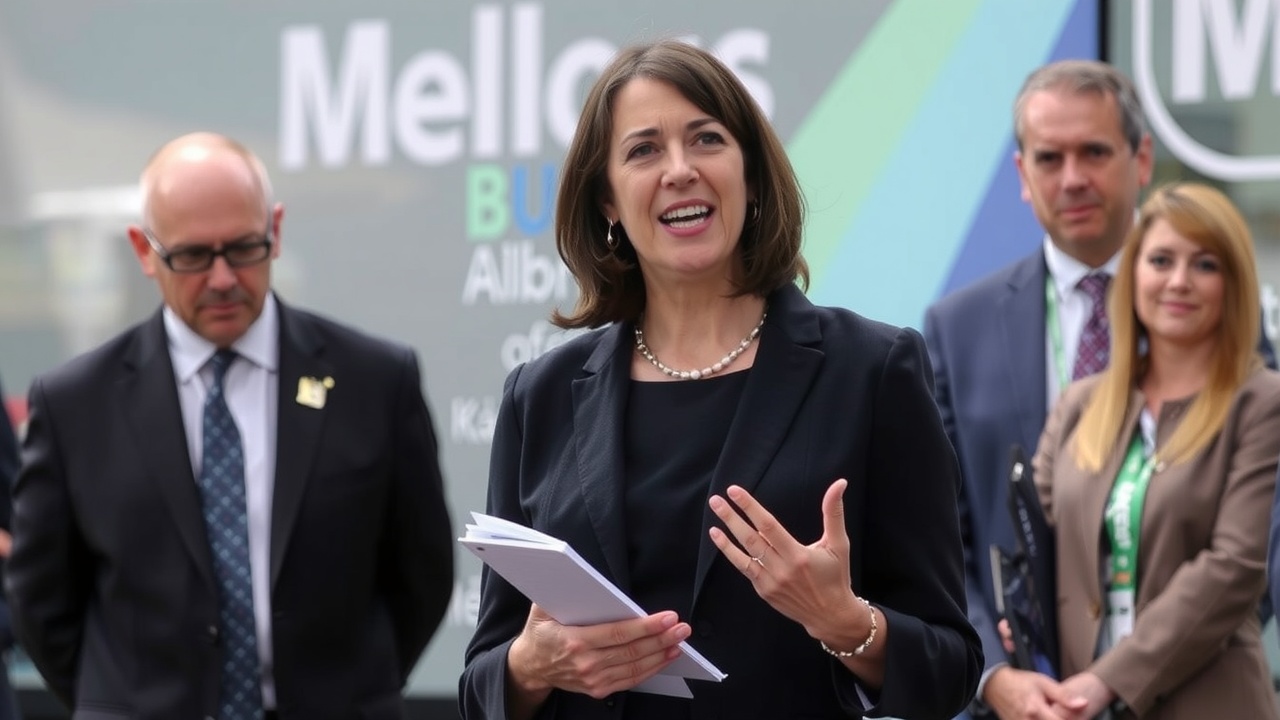
On March 26, the chancellor will give her Spring Statement
We check for announcements about pensions that might have an impact on retirees or savers.
On March 26, Chancellor Rachel Reeves will deliver her Spring Statement, and there are many rumors about what she might say.
These include raising taxes, lowering government spending, and decreasing the cash ISA allowance. Though a revision to the ISA regulations may still be revealed later, it is now understood that the cash ISA limit will not change next week.
The UK's fiscal watchdog, the Office for Budget Responsibility (OBR), will release a Spring Forecast that will be followed by the Spring Statement.
Despite the government's declaration that it is "committed to one major fiscal event a year," which is most likely the Autumn Budget rather than the Spring Statement, there is growing conjecture that this week's statement may still include some tax and spending adjustments.
Tom Selby, AJ Bell's director of public policy, asks, "Is it a Spring Forecast? A Spring Statement? Dare we even say it a mini-Budget".
"Whatever name the chancellor chooses for her set piece announcement on March 26, the OBR's predictions for the economy are likely to be dire, with concerns about stagnation and the threat of growing defense expenditures as Donald Trump's US government pulls away from Europe further taxing the public coffers.
"With such a difficult backdrop, there is a growing expectation that tough fiscal measures are in the offing, even though the chancellors have insisted that there will be no return to austerity," he continues.
We might see some adjustments to pensions if Reeves is unsure of how to balance the books. Since assuming power last year, the government has already targeted pensioners and pension savers by imposing inheritance tax on pension pots and means-testing the Winter Fuel Payment.
We examine possible pension announcements in the next Spring Statement.
State pension.
We already know that next month, the state pension will increase by 4.1 percent. However, a government eager to cut expenses might target the burdensome state pension payment bill and the triple lock commitment.
"We cannot rule out a rabbit in the hat review of the state pension if the OBRs report and other budgetary pressures are worse than anticipated," cautions Aegon's pensions director, Steven Cameron. The state pension age is already being reviewed, and government finances may indicate that it needs to be raised even more quickly.
He goes on to say that since it has been shown to be expensive and erratic in recent years, the state pension triple lock may also be examined. "The formula may be modified, even though the government has pledged to maintain it for the time being. A smoothing mechanism could be implemented in place of annual increases being the highest of inflation, earnings growth, or 2 percent.
Pensioners may receive at least an inflation increase, according to Cameron, and an additional boost if wage growth has, on average, exceeded inflation over the last three years. He continues, "This would protect pensioners' purchasing power and make future costs less unpredictable."
The inheritance tax and pensions.
In the Autumn Budget of the previous year, Reeves declared that pension pots would be liable to inheritance tax (IHT) starting in April 2027.
This was unexpected, and in response, a number of pension experts claimed that the policy would penalize careful savers and their loved ones while also making things more complicated.
The government consultation on the implementation of the rule change has concluded, and it is possible that Reeves will provide an update in the Spring Statement.
Former pensions minister and partner at pension consultants LCP Steve Webb tells BFIA: "At a stretch, we might get an update on plans to apply IHT to pensions, perhaps saying that HMRC are going to do a further consultation because although the policy hasn't changed they want to make it less onerous on individuals (and pension schemes)."
Selby goes on to say: "The chancellor may not have time to provide thorough feedback before the Spring Statement, considering that the consultation reportedly received hundreds of responses. However, she could take advantage of the chance to express her willingness to think about doing things differently or whether Treasury is dedicated to its IHT plans.
Tax breaks.
Reeves is rumored to be considering extending the Conservatives' tax threshold freeze past 2028. Higher tax rates and a greater number of taxpayers would result from this.
"The allowance freeze is scheduled to expire in 2028, but given Reeves' financial predicament, extending it until 2030 could give the Exchequer some much-needed cash," Selby says.
Because of frozen tax allowances, people are forced into higher tax brackets as their wages increase. Many pensioners will soon have to begin paying taxes on their state pension due to the triple lock's effect on the state pension's growth and the static tax-free personal allowance.
Selby points out: "The Treasury may feel at ease giving through state pension increases while taking with income tax, but it also gives the Conservatives the opportunity to claim that the government is taxing pensioners for retirement.
Pensions for employees.
Webb believes that the government's intentions to force the consolidation of smaller schemes in order to create defined contribution pension "mega funds," as outlined in the Autumn 2024 Mansion House speech, may be updated.
Reforms to incentivize pension plans to make greater investments in the UK economy might also be discussed.
According to Selby, "Reeves could give an update on the government's thinking in the Spring Statement, but the second stage of the Pensions Review, which is centered on adequacy, has not yet materialized."
"There are a lot of obstacles to overcome in this situation, mainly the question of how and when to increase the minimum automatic enrollment contributions from 8% of qualifying earnings. There is a good chance that this particular reform will make its way into the political landscape because the government is focused on achieving better economic growth figures and has already dramatically increased employer costs in her October Budget.
Tax breaks for pensions.
Could the Spring Statement give us all a pension shock given the unstable economic climate and a government that frequently surprises us (IHT on pensions, Winter Fuel Allowance, and the refusal to pay Waspi compensation, to name just three examples).
The announcement that pensions will be subject to inheritance tax was one unpleasant surprise in the first year of the Labour government, according to Tomm Adams, partner at the tax firm Blick Rothenberg, who spoke to the BFIA. Few of us anticipated this; instead, we were all speculating about potential reductions in income tax relief for retirement benefits or pension contributions. For instance, cutting the tax-free lump sum from 25% of the pot to 20% or even 5%.
He continues: "I don't think the chancellor will change her mind about this inheritance tax raid in her Spring Statement, but could she really reduce income tax relief? It would be disastrous for millions of regular people who want to save money in the long run. Treasury gains in the short term would come at the expense of a significant, long-term effect on future pensioners' lives and savers' trust in the UK pension system.














Leave a comment on: What was Rachel Reeves's Spring Statement on pensions?